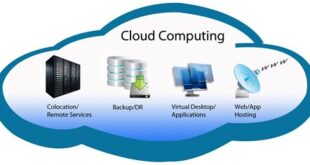 .
.
What are Cloud Services?
Cloud services, including the one provided by [Insert Cloud Services Company Name], have become an integral part of our digital landscape. But what do we really mean when we talk about “cloud services?” In simple terms, cloud services refer to a vast array of resources and applications that are accessible to users over the internet. They offer a convenient and efficient way for individuals and businesses to store and process data, run software applications, and access information from any location with an internet connection.
Think of cloud services as a virtual warehouse for all your digital needs. Instead of relying on the limited storage capacity of your computer or portable devices, cloud services provide unlimited storage space to store files, documents, photos, videos, and any other digital content you may have. This means you can access your files from any device or location, without the need to carry physical storage devices such as USB drives or external hard drives. Cloud services also make it easy to share files and collaborate with others, whether it’s within your organization or with external partners or clients.
What sets cloud services apart from traditional computing models is their scalability and flexibility. Unlike traditional physical servers or hardware, cloud services can scale up or down based on your needs. This means you can easily adjust your cloud resources to accommodate fluctuations in demand, whether it’s during peak usage periods or when you need to scale back during quieter times. This flexibility allows businesses to save costs by paying only for the resources they actually need, rather than investing in expensive hardware that may sit idle for most of the time.
Another advantage of cloud services is the ability to access a wide range of applications and software. Instead of purchasing and installing software on individual devices, cloud services offer a variety of applications that can be accessed directly through the internet. This eliminates the hassle of maintenance, updates, and compatibility issues, as everything is managed by the cloud service provider. Whether you need tools for productivity, communication, project management, or data analysis, cloud services provide a one-stop solution with a vast library of applications to choose from.
Cloud services are also known for their robust security measures. With data breaches and cyber threats becoming increasingly common, cloud service providers invest heavily in security infrastructure to protect their users’ data. They employ advanced encryption techniques, multi-factor authentication, and regular security audits to ensure the safety and privacy of your information. By entrusting your data to a reputable cloud service provider, you can have peace of mind knowing that your files and sensitive information are protected against unauthorized access.
In conclusion, cloud services offer a convenient, flexible, and secure way to store and access your digital assets. From unlimited storage space to scalable resources and a wide range of applications, cloud services provide a comprehensive solution for individuals and businesses alike. So why limit yourself to the confines of your physical devices when you can leverage the power of the cloud?
When it comes to cloud solutions, there is no one-size-fits-all approach. Every organization has unique requirements and objectives that should be taken into consideration.
Types of Cloud Services
Cloud services have revolutionized the way businesses operate in today’s digital age. With the increasing reliance on remote working, data storage, and software solutions, cloud services play a crucial role in providing the necessary infrastructure and platforms. In this article, we will explore the three main types of cloud services: Software as a Service (SaaS), Platform as a Service (PaaS), and Infrastructure as a Service (IaaS).
Software as a Service (SaaS)
SaaS is a cloud computing model that delivers software applications over the internet. This type of cloud service allows users to access and use software applications without the need for installation or maintenance on their local devices. One of the prime benefits of SaaS is the ease of use and accessibility it offers to businesses and individuals. With SaaS, users can access software applications from any device with an internet connection, making it convenient for remote workers or teams spread across different locations.
SaaS is incredibly versatile and caters to various industries and applications. From project management tools to customer relationship management systems, SaaS provides a wide range of software solutions to meet the needs of different businesses. Popular SaaS offerings include Salesforce, Microsoft 365, and Dropbox, which provide seamless collaboration and productivity tools to businesses of all sizes.
Platform as a Service (PaaS)
PaaS is a cloud computing service that provides a platform for users to develop, run, and manage applications without building and maintaining the underlying infrastructure. It allows businesses to focus on application development and deployment by providing a ready-to-use environment. PaaS eliminates the need for businesses to worry about hardware, storage, and networking infrastructure, enabling them to accelerate their application development process.
With PaaS, developers can leverage pre-built tools, programming languages, and frameworks to streamline the application development cycle. This allows businesses to save time and resources that would otherwise be spent on infrastructure setup and maintenance. For example, popular PaaS offerings like Heroku and Google App Engine provide developers with the necessary tools and environment to build and deploy web applications swiftly and efficiently.
Popular Cloud Service Providers
IaaS is a cloud computing service that provides virtualized computing resources over the internet. Instead of investing in and managing physical infrastructure, businesses can rent or lease virtual infrastructure from IaaS providers. This includes virtual machines, storage, and networks, which can be scaled up or down based on business requirements.
IaaS offers businesses immense flexibility and scalability. Whether a startup or an established enterprise, businesses can quickly adapt to changing needs by adjusting the resources they consume from the IaaS provider. This eliminates the need for upfront investment in hardware and allows businesses to pay for only the resources they need, reducing overall costs.
With popular IaaS providers such as Amazon Web Services (AWS), Microsoft Azure, and Google Cloud Platform, businesses can benefit from a wide range of services and infrastructure options. From virtual servers to object storage, IaaS enables businesses to build and manage their IT infrastructure with utmost flexibility and scalability.
In conclusion, cloud services, including Software as a Service (SaaS), Platform as a Service (PaaS), and Infrastructure as a Service (IaaS), have transformed the way businesses operate. From accessing software applications to developing and managing custom applications and virtual infrastructure, cloud services offer unparalleled convenience, scalability, and cost-efficiency. By leveraging the right cloud services, businesses can thrive in an increasingly digital world while focusing on their core competencies.
Benefits of Cloud Services
Cloud services have revolutionized the way businesses operate by providing a wide range of benefits that drive growth and efficiency. From small startups to large corporations, organizations of all sizes are embracing cloud services to stay competitive in today’s fast-paced digital landscape. In this article, we will explore the numerous advantages of cloud services, including scalability, cost-efficiency, and ease of access.
Scalability: Unlocking Limitless Potential
One of the most significant benefits of cloud services is their ability to scale effortlessly. Traditional on-premises infrastructure often requires hefty investments in hardware and software upgrades to accommodate increasing demands. With cloud services, businesses can easily scale up or down their resources based on fluctuating needs without major upfront costs.
Imagine a retail company experiencing a sudden surge in online traffic during a holiday season. By leveraging cloud services, they can swiftly ramp up their server capacity and ensure smooth user experiences, without worrying about overwhelming their existing infrastructure. This scalability empowers businesses to seize opportunities and adapt to market dynamics rapidly.
Furthermore, cloud services enable seamless expansion into new markets. With traditional IT infrastructure, setting up operations in a new location involves significant time, effort, and expenses. However, cloud services eliminate these barriers by providing a globally accessible platform. Businesses can easily deploy their services in new regions with a few clicks, streamlining their expansion strategies.
Cost-Efficiency: Optimizing Your Budget
Cloud services offer unparalleled cost-efficiency compared to traditional IT setups. On-premises infrastructure often requires substantial upfront investments, including purchasing and maintaining hardware and software licenses. These expenses can strain budgets, particularly for small and medium-sized enterprises.
By moving to the cloud, businesses can shift from a capital expenditure (CapEx) model to an operational expenditure (OpEx) model. This means they can pay for the resources they need on a subscription basis, avoiding large upfront costs. Cloud services also eliminate the need for dedicated physical servers and their associated maintenance and cooling expenses.
Moreover, cloud services leverage economies of scale. Cloud providers manage a vast number of users, allowing them to spread their infrastructure costs across multiple clients. This results in lower costs for businesses who benefit from shared resources, advanced technologies, and constant updates without incurring additional charges.
Ease of Access: Empowering a Mobile Workforce
Gone are the days when employees had to be confined to their office desks to access company data and applications. Cloud services provide the freedom and flexibility for employees to work from anywhere with an internet connection. This accessibility empowers businesses to embrace remote work arrangements and accommodate the needs of a modern, mobile workforce.
Whether it’s accessing files, collaborating on projects, or attending virtual meetings, cloud services ensure that employees can seamlessly connect and contribute regardless of their geographical location. This accessibility also promotes work-life balance, as employees can choose the most convenient environment for their productivity without sacrificing collaboration and connectivity.
Furthermore, cloud services offer enhanced security features, such as data encryption, multi-factor authentication, and regular backups. This ensures that critical business information remains protected, even when accessed remotely. Businesses can confidently embrace cloud services, knowing that their data is secure and compliant with industry regulations.
In conclusion, cloud services have become a vital tool for businesses seeking to stay competitive and agile in today’s digital era. With the ability to scale effortlessly, optimize budgets, and empower a mobile workforce, cloud services provide flexibility, cost-efficiency, and enhanced productivity. As technology continues to advance, organizations must harness the power of the cloud to unlock their full potential and thrive in the ever-evolving business landscape.
Cloud services are rapidly transforming the way organizations operate. They provide access to a wide range of IT resources and applications, enabling businesses to scale quickly and efficiently.
Common Cloud Services
When it comes to the ever-evolving world of technology, one phrase that has gained significant popularity is “cloud services.” This term refers to a range of services that are delivered over the internet, allowing users to access and utilize various resources without the need for physical infrastructure. In this article, we will explore the different types of cloud services and how they can benefit individuals and businesses alike.
Cloud services encompass a wide range of offerings that cater to different needs and requirements. Let’s start by exploring some common examples:
1. Cloud Storage: Cloud storage enables users to store and access data remotely through the internet. It eliminates the need for physical storage devices and provides a convenient and secure way to safeguard important files and documents. Whether you are an individual looking to back up your precious memories or a business striving for efficient data management, cloud storage offers a scalable and cost-effective solution.
2. Cloud Backup: Similar to cloud storage, cloud backup focuses on protecting valuable data from potential loss or damage. It involves creating copies of important files and storing them in the cloud. By doing so, individuals and businesses can easily recover their data in case of hardware failure, natural disasters, or any other unforeseen circumstances. Cloud backup offers peace of mind and ensures that critical information remains intact.
3. Cloud-Based Productivity Suites: As the traditional office environment undergoes a digital transformation, cloud-based productivity suites have emerged as powerful tools. These suites, such as Google Workspace (formerly G Suite) and Microsoft 365, provide a range of applications and collaboration features that enhance productivity and communication. With cloud-based productivity suites, individuals and teams can work seamlessly across different devices and locations, enabling efficient collaboration and facilitating remote work.
4. Cloud-Based Customer Relationship Management (CRM) Software: In the competitive business landscape, effective customer relationship management is crucial. Cloud-based CRM software brings together various aspects of customer interaction, including sales, marketing, and support, into a centralized platform. It empowers businesses to streamline their processes, gain valuable insights, and deliver personalized experiences to their customers. From managing leads to tracking customer interactions, cloud-based CRM software plays a vital role in driving business growth and nurturing long-lasting customer relationships.
When it comes to choosing the right cloud services, it’s important to consider your specific needs and objectives. Whether you are an individual seeking convenient data storage or a business looking to enhance productivity and customer relationships, the cloud offers a plethora of solutions. By harnessing the power of cloud services, you can stay agile, secure, and ahead of the curve in today’s fast-paced digital landscape.
In conclusion, cloud services have revolutionized the way we store, backup, collaborate, and manage customer relationships. From cloud storage to cloud-based productivity suites and CRM software, these services provide individuals and businesses with the tools they need to thrive in the digital era. So, why wait? Embrace the cloud and unlock a world of possibilities!
Cloud infrastructure forms the backbone of cloud services. It comprises the hardware, software, networking, and storage components necessary to support the delivery of cloud computing resources.
Cloud Services and Security
Cloud services have become an integral part of our modern technological landscape, providing users with immense convenience and flexibility. Whether it’s storing files, accessing applications, or collaborating with colleagues remotely, cloud-based solutions have revolutionized the way we work. However, amidst this convenience, one critical factor that should never be overlooked is data security and privacy. In an era where cyber threats are constantly evolving, it is imperative to prioritize safeguarding sensitive information when utilizing cloud services.
When it comes to cloud services, security should be ingrained in every aspect of the infrastructure. From the moment data is uploaded to the cloud, stringent measures must be implemented to ensure its protection. Encryption, for instance, plays a vital role in safeguarding data by converting it into an unreadable format, which can only be accessed using an encryption key. This not only prevents unauthorized access but also adds an extra layer of security if the data falls into the wrong hands.
Another crucial aspect of securing cloud services is access control. By implementing robust authentication and authorization protocols, organizations can ensure that only authorized individuals can access sensitive data. This includes multi-factor authentication, where users are required to provide additional verification, such as a fingerprint or a unique code sent to their mobile device, in addition to a password. Such measures significantly reduce the risk of unauthorized access and enhance the overall security posture.
Regular monitoring and auditing of cloud services also play a vital role in maintaining data security and privacy. By actively monitoring the infrastructure and analyzing system logs, organizations can quickly identify any suspicious activities or vulnerabilities. This proactive approach allows for immediate action, whether it’s blocking unauthorized access or patching potential security loopholes. Furthermore, regular audits help in assessing the effectiveness of security measures and identifying areas where improvements can be made.
As cloud services continue to evolve, so do the techniques employed by cybercriminals. Therefore, staying up to date with the latest security practices and technologies is crucial. Cloud service providers often release updates and patches to address newly discovered vulnerabilities, and it is essential to promptly install these to ensure maximum protection. Additionally, investing in employee training and awareness programs can help in mitigating the risks posed by social engineering attacks and human errors.
In conclusion, the convenience offered by cloud services should never overshadow the importance of data security and privacy. Implementing robust encryption, access control measures, proactive monitoring, and continuous improvement are essential for keeping sensitive information safe. By staying vigilant and up to date with the latest security practices, businesses and individuals can fully enjoy the benefits of cloud services without compromising their data’s integrity.
Cloud computing is a fundamental concept in the world of technology and business. It involves the delivery of computing services—including virtual servers, storage, databases, and software—over the internet.
Popular Cloud Service Providers
Cloud services have become an essential part of our digital landscape, providing businesses and individuals with a wide range of benefits such as scalability, flexibility, and cost-effectiveness. When it comes to cloud service providers, there are several leading players in the market that offer top-notch services to cater to diverse needs. Let’s take a closer look at some of the most popular cloud service providers:
1. Amazon Web Services (AWS)
One of the pioneers in the cloud computing industry, Amazon Web Services (AWS) has established itself as a dominant player in the market. With a comprehensive suite of services, including computing power, storage, and databases, AWS offers a scalable and secure infrastructure to businesses of all sizes. Whether you need to host a simple website or deploy complex applications, AWS has the resources and tools to meet your requirements.
2. Microsoft Azure
Microsoft Azure is another leading cloud service provider that offers a wide range of cloud-based solutions and services. Azure provides a robust and reliable platform for businesses to build, deploy, and manage applications and services. With a focus on integration with Microsoft’s existing tools and technologies, Azure is an ideal choice for enterprises that rely on Microsoft’s software ecosystem.
3. Google Cloud Platform (GCP)
Google Cloud Platform (GCP) is Google’s offering in the cloud computing space. With its vast network infrastructure and powerful data analytics capabilities, GCP is well-suited for companies looking to leverage the power of data and machine learning. GCP provides a suite of services that enable businesses to develop and deploy scalable applications with ease, while also benefiting from Google’s expertise in data management and analytics.
4. IBM Cloud
IBM Cloud is an enterprise-grade cloud platform that caters to the specific needs of businesses, particularly those in highly regulated industries. With a focus on security and compliance, IBM Cloud offers a wide range of services, including AI, blockchain, and IoT, to help businesses innovate and transform digitally. IBM’s extensive portfolio of services and industry-specific solutions make it a preferred choice for organizations seeking a trusted cloud partner.
5. Alibaba Cloud
Alibaba Cloud is a rising star in the cloud computing world, providing innovative solutions to businesses looking to streamline their operations and enhance their digital capabilities. With a strong focus on elastic computing, Alibaba Cloud offers a unique value proposition that sets it apart from other cloud service providers. Whether you are a small startup or a large enterprise, Alibaba Cloud has the tools and resources to drive your digital transformation journey.
6. Oracle Cloud
[Additional Cloud Service] is another prominent player in the cloud service provider landscape, offering a comprehensive suite of cloud solutions tailored to the needs of businesses in various domains. From robust infrastructure services to advanced AI and machine learning capabilities, Oracle Cloud empowers organizations to accelerate innovation and deliver superior customer experiences. With a user-friendly interface and a wide range of services, Oracle Cloud is a go-to choice for businesses seeking agility, scalability, and reliability in their cloud journey.In conclusion, the world of cloud services is vast and filled with options. Whether you choose industry giants like AWS, Azure, or GCP, or opt for specialized providers like IBM Cloud or [Additional Cloud Service], the key is to find a partner that aligns with your unique business requirements. Assess your needs, consider factors like security, scalability, and pricing, and embark on your cloud journey with confidence alongside a reputable cloud service provider.
Future of Cloud Services
As technology continues to advance, the future of cloud services looks promising with further enhancements in areas such as artificial intelligence, edge computing, and internet of things (IoT) integration. The demand for cloud services has been on the rise in recent years, as businesses and individuals realize the numerous benefits it offers. Cloud computing allows users to store, access, and manage data and applications over the internet, eliminating the need for physical infrastructure and providing scalability, flexibility, and cost-efficiency.
With the rapid development of artificial intelligence, cloud services are expected to become even more powerful and intelligent. AI-driven solutions have the potential to automate processes, analyze large amounts of data, and make predictions, revolutionizing various industries. From healthcare to finance, AI integrated into cloud services can help businesses make informed decisions, improve efficiency, and enhance customer experiences.
Another area that holds great potential for the future of cloud services is edge computing. Edge computing involves processing data closer to the source, reducing latency and improving real-time decision-making. By bringing computation and data storage closer to devices and sensors, edge computing enables faster data analysis and response times, making it ideal for applications that require low latency, such as autonomous vehicles and industrial IoT. The combination of edge computing and cloud services can provide a seamless and efficient computing experience.
Internet of things (IoT) integration is also set to play a significant role in the future of cloud services. As more devices and objects become connected to the internet, the volume of data generated by IoT devices will continue to increase exponentially. Cloud services offer the scalability and storage capabilities needed to handle and analyze this massive influx of data. By leveraging cloud computing, businesses can make meaningful insights from IoT data, enhance automation, and drive innovation.
Looking ahead, the future of cloud services is likely to bring advancements in security, privacy, and data management. As more sensitive data is stored and processed in the cloud, ensuring robust security measures will be paramount. Cloud service providers will need to implement state-of-the-art encryption, authentication, and access control mechanisms to safeguard data from cyber threats. Additionally, privacy regulations and policies will evolve to protect user data and ensure compliance.
The future of cloud services will continue to shape the way we live, work, and interact with technology. As advancements continue, businesses and individuals alike can expect even greater accessibility, intelligence, and efficiency from cloud-based solutions. Whether it’s harnessing the power of artificial intelligence, leveraging edge computing for real-time applications, or integrating IoT devices into cloud infrastructure, the possibilities are endless. Embracing these technologies and staying updated with the latest trends will be crucial for organizations to thrive in the digital era.
The evolution of cloud technology has revolutionized the way businesses operate. It offers flexibility, scalability, and cost-effectiveness, making it a compelling choice for organizations of all sizes.
 Cloud Solution All Cloud Information
Cloud Solution All Cloud Information








